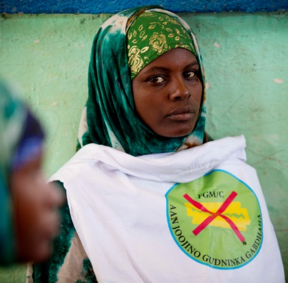 There are approximately 45 million girls of primary and secondary school age not going to school in sub-Saharan Africa according to the UIS – more than in any other region. Our 2017/8 report showed that across 18 countries in the region, gender-based violence, as measured by intimate partner violence, early marriage and female genital mutilation, was one of the factors that pushed girls out of school. It’s time for these abhorrent practices to stop.
There are approximately 45 million girls of primary and secondary school age not going to school in sub-Saharan Africa according to the UIS – more than in any other region. Our 2017/8 report showed that across 18 countries in the region, gender-based violence, as measured by intimate partner violence, early marriage and female genital mutilation, was one of the factors that pushed girls out of school. It’s time for these abhorrent practices to stop.
Female genital mutilation/cutting (FGM/C) may not seem a large-scale problem. Yet, while the exact number of girls and women worldwide being subjected to the practice remains unknown, what we do know is that at least 200 million girls and women in thirty countries have been victims of the practice, with the highest concentrations in sub-Saharan Africa. In some countries, such as Somalia, for instance, 98% of girls and women, aged 15 to 49 years have undergone FGM/C.

Percentage of girls and women aged 15 to 49 years who have undergone female genital mutilation, by country. Source: UNICEF 2013
With large scale migration, the practice is not confined to poor countries. For example, in the past year, 9,000 cases were attended to by the National Health Service of the United Kingdom and cases have almost tripled since 1990 in the United States. While the prevalence is falling worldwide, sadly the number of cases may still rise due to population growth. If current trends continue, 15 million more girls between ages 15 and 19 will be subjected to the practice globally by 2030.
Due to deeply entrenched social and cultural practice in many places, it is commonplace for girls aged below 10 years to be pulled out of formal education, and forced to take part in sometimes heinous traditional female initiation ceremonies, such as cutting. In many contexts, the social norm upholding the practice is so powerful that families have their daughters cut even when they are aware of the long-term physical harm it can cause. Indeed, as reported in a UNICEF report, there is a high degree of discrepancy between the low support for FGM/C and the high prevalence of its practice. This just goes to show the strength of a tradition, and the extent of the battle ahead of us if we are to stop it. Continue reading →
Like this:
Like Loading...
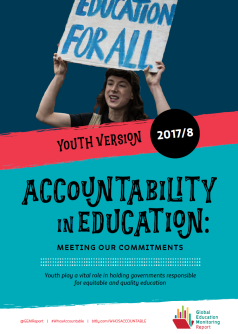 “I believe that it is no longer enough for us to pay lip service to education; now is the time to insist on transparency and accountability in education,” said Victoria Ibiwoye, youth representative of the SDG Education 2030 Steering Committee from Nigeria.
“I believe that it is no longer enough for us to pay lip service to education; now is the time to insist on transparency and accountability in education,” said Victoria Ibiwoye, youth representative of the SDG Education 2030 Steering Committee from Nigeria.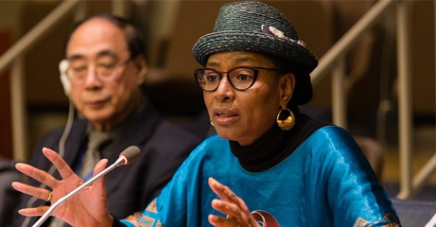 activists for education,” said Dr Bolly Barry as she opened the event. She spoke of the importance for all youth to advocate for the right to education, to raise awareness among their peers that they have this right, and to empower them to claim it. Continue reading
activists for education,” said Dr Bolly Barry as she opened the event. She spoke of the importance for all youth to advocate for the right to education, to raise awareness among their peers that they have this right, and to empower them to claim it. Continue reading 


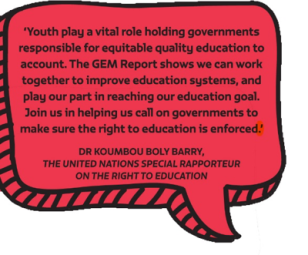 This afternoon at 4 PM (GMT), the GEM Report will host a
This afternoon at 4 PM (GMT), the GEM Report will host a 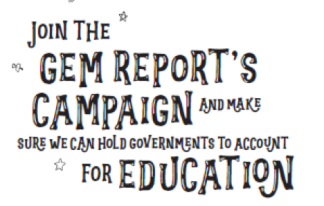 Although the majority of countries recognize the right to education through international and national law, the fulfilment of the right to education is far from being a reality. This is why we have launched a
Although the majority of countries recognize the right to education through international and national law, the fulfilment of the right to education is far from being a reality. This is why we have launched a 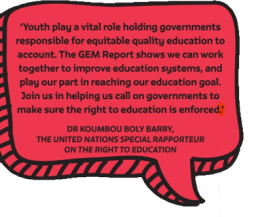 On 8 December, the GEM Report launched a youth campaign,
On 8 December, the GEM Report launched a youth campaign, 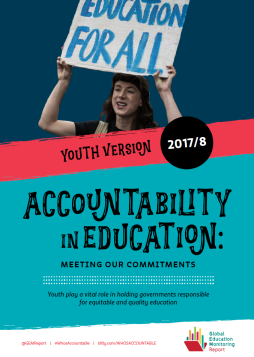 The
The  people’s right to education ahead of Human Rights Day, celebrated on December 10.
people’s right to education ahead of Human Rights Day, celebrated on December 10.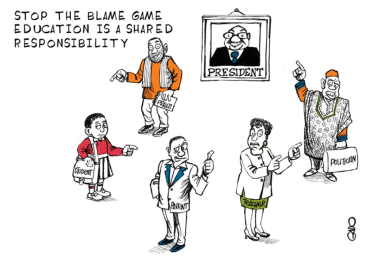 education too. “Our education system is a framework or a puzzle where each actor has its role, and when one of them breaks the chain, the whole system is impacted” explains
education too. “Our education system is a framework or a puzzle where each actor has its role, and when one of them breaks the chain, the whole system is impacted” explains 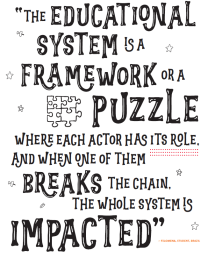 Filomena a high-school student from Brazil. For example, students have to turn up to classes, adhere to codes of conduct on good behaviour and focus on learning. Just as governments should be held to account for meeting their responsibilities, students shouldn’t be let off the hook for theirs.
Filomena a high-school student from Brazil. For example, students have to turn up to classes, adhere to codes of conduct on good behaviour and focus on learning. Just as governments should be held to account for meeting their responsibilities, students shouldn’t be let off the hook for theirs. There are approximately 45 million girls of primary and secondary school age not going to school in sub-Saharan Africa according to the UIS – more than in any other region. Our
There are approximately 45 million girls of primary and secondary school age not going to school in sub-Saharan Africa according to the UIS – more than in any other region. Our 



